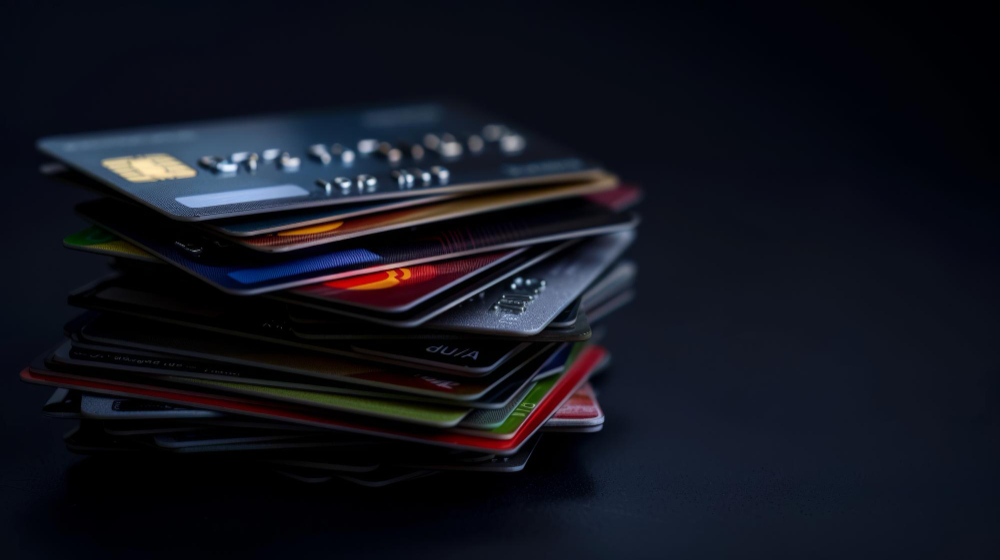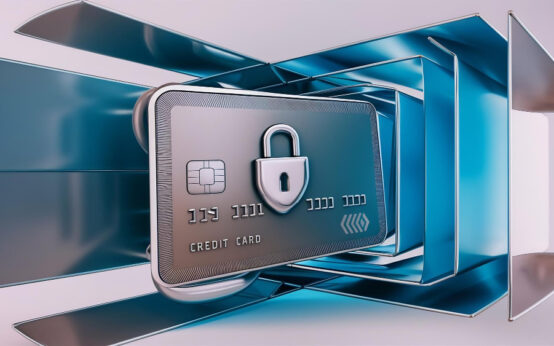
Determining how many credit cards should I have involves a careful analysis of my financial needs and consumption profile. Therefore, the decision should be based on the benefits that each card offers. As well as the ability to manage spending consciously.
After all, having multiple cards can be advantageous for taking advantage of rewards programs, varied interest rates and differentiated limits. However, it requires greater control of finances to avoid getting into debt. So find out how many credit cards should I have.
Advantages of having more than one credit card
Having more than one credit card can offer several advantages. First, it provides flexibility in managing spending by separating different types of purchases across multiple cards. For example, one card can be used for everyday expenses, while another can be reserved for larger purchases or trips.
Moreover, multiple cards can allow you to take advantage of various rewards programs. Some cards offer cashback, while others provide points or miles that can be redeemed for travel or merchandise. By using different cards for specific purposes, you can maximize these rewards.
In addition, having more than one card can also help increase your credit limit, which may improve your credit score if you maintain low balances and avoid high utilization rates. Overall, managing multiple cards carefully can enhance your financial flexibility and reward potential.
Risks of having too many credit cards
Having too many credit cards can lead to significant risks. First, managing multiple cards can become overwhelming. It increases the chances of missing payments or overlooking due dates, which negatively affects your credit score.
Moreover, multiple cards can tempt you to spend beyond your means. With higher credit limits available, it’s easy to accumulate debt quickly, especially if you’re not keeping track of your balances. As a result, interest charges can mount up.
Additionally, having several cards may hurt your credit score in the long run. Credit agencies consider the total credit available and your spending habits. If your credit utilization is high across multiple cards, it signals financial instability and can lower your score.
How the financial profile affects the decision
Your financial profile plays a key role in deciding how many credit cards you should have. If you have a stable income and a good credit history, you may be in a better position to manage multiple cards responsibly. This can open doors to higher credit limits and various rewards programs.
On the other hand, if your income fluctuates or your credit score is lower, it might be safer to limit the number of cards. Having fewer cards can help you stay focused on managing your finances and avoiding excessive debt. Additionally, your spending habits are another factor to consider.
Ultimately, understanding your financial situation and discipline is essential when deciding how many cards you need. Adjusting the number of credit cards to match your budget and goals can help you maintain financial stability.
When to consider adding a new card
Adding a new credit card can be a smart move in certain situations. For example, if you want to take advantage of a specific rewards program or promotional offers, a new card might make sense. These benefits can include cashback, travel points, or 0% interest on balance transfers.
Additionally, if your current credit limit is too low to meet your needs, applying for another card can increase your available credit. This, in turn, can lower your credit utilization ratio and potentially improve your credit score.
However, it’s important to evaluate your spending habits and ability to manage the new card responsibly. Adding a new credit card should not lead to excessive debt. Carefully consider whether it aligns with your financial goals before applying for a new card.
Strategies for managing multiple cards
Managing multiple credit cards efficiently requires organization and discipline. Start by keeping track of each card’s due dates to avoid late fees. You can set reminders on your phone or use budgeting apps to stay on top of payments.
Next, prioritize paying off high-interest balances first. This helps reduce the total interest paid over time and can improve your credit score. Additionally, consider automating payments for at least the minimum due to avoid missed deadlines.
Another strategy is to regularly review your spending. Categorize expenses by card and ensure you’re using each card for its intended purpose. This can help you maximize rewards and prevent overspending. By staying organized and focused, you can manage multiple cards without compromising your financial health.
Credit card vs. debit card
Credit cards and debit cards serve different purposes, and understanding when to use each can help manage your finances better. A credit card allows you to borrow money up to a certain limit, making it useful for larger purchases or emergencies.
You can pay off the balance over time, but interest rates can be high if you don’t pay in full. On the other hand, a debit card draws directly from your bank account. It offers a more straightforward way to control spending since you can only use the funds available.
However, it lacks the same rewards programs or purchase protection features often offered by credit cards.In general, use credit cards for purchases you can pay off easily and want to earn rewards from. Debit cards are better for everyday spending, where you want to stick to a set budget and avoid interest charges.
In conclusion, the number of credit cards you should have depends on your financial goals, spending habits, and ability to manage debt responsibly. It’s important to find a balance that suits your needs. Carefully assess your situation before deciding how many credit cards should I have. See you later!



 Best credit cards secured: your path to a stronger credit history <p style='text-transform:none; line-height:20px !important; font-size:16px; font-weight:normal; color:#424242; margin: 0px; margin-top:10px;'>They offer a smart way to show lenders you’re serious about managing your finances.</p>
Best credit cards secured: your path to a stronger credit history <p style='text-transform:none; line-height:20px !important; font-size:16px; font-weight:normal; color:#424242; margin: 0px; margin-top:10px;'>They offer a smart way to show lenders you’re serious about managing your finances.</p>  The best credit cards for lounge access: your key to premium airport comfort <p style='text-transform:none; line-height:20px !important; font-size:16px; font-weight:normal; color:#424242; margin: 0px; margin-top:10px;'>With these cards, you have exclusive access to lounges, offering comfort while you wait for your flight.</p>
The best credit cards for lounge access: your key to premium airport comfort <p style='text-transform:none; line-height:20px !important; font-size:16px; font-weight:normal; color:#424242; margin: 0px; margin-top:10px;'>With these cards, you have exclusive access to lounges, offering comfort while you wait for your flight.</p>  Safe, simple, and fun: discover the best debit cards for kids <p style='text-transform:none; line-height:20px !important; font-size:16px; font-weight:normal; color:#424242; margin: 0px; margin-top:10px;'>These cards offer the flexibility and convenience that both parents and kids need.</p>
Safe, simple, and fun: discover the best debit cards for kids <p style='text-transform:none; line-height:20px !important; font-size:16px; font-weight:normal; color:#424242; margin: 0px; margin-top:10px;'>These cards offer the flexibility and convenience that both parents and kids need.</p>